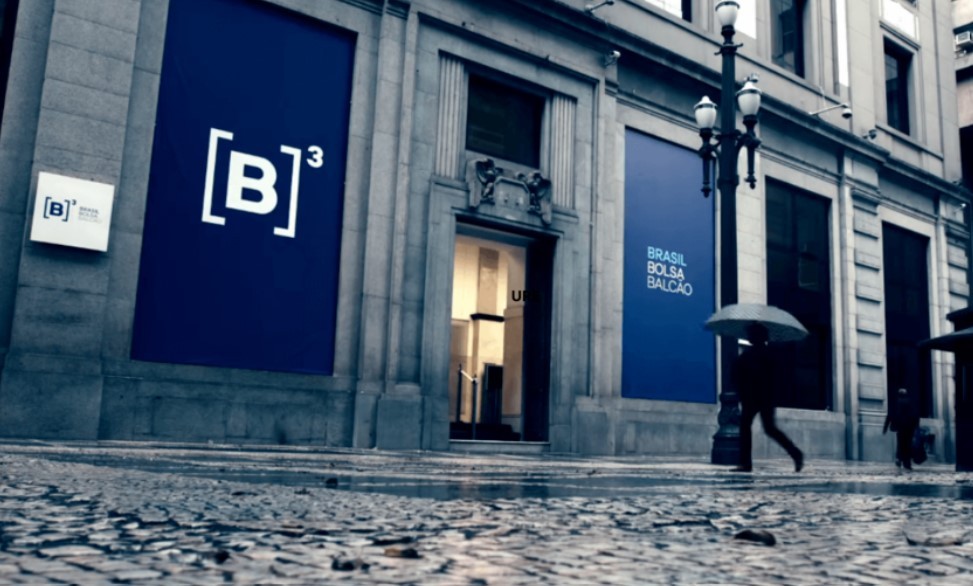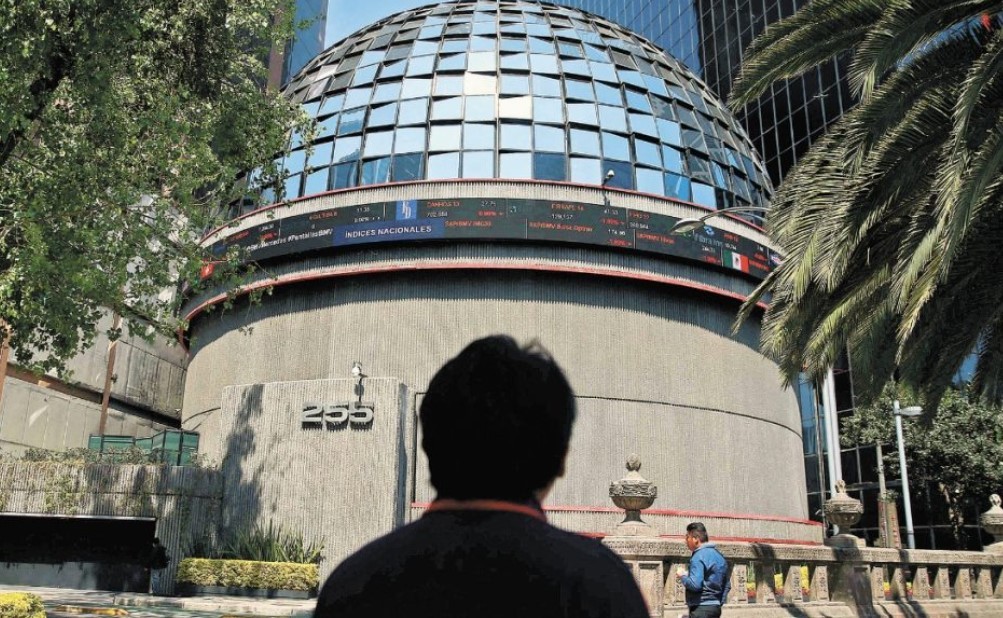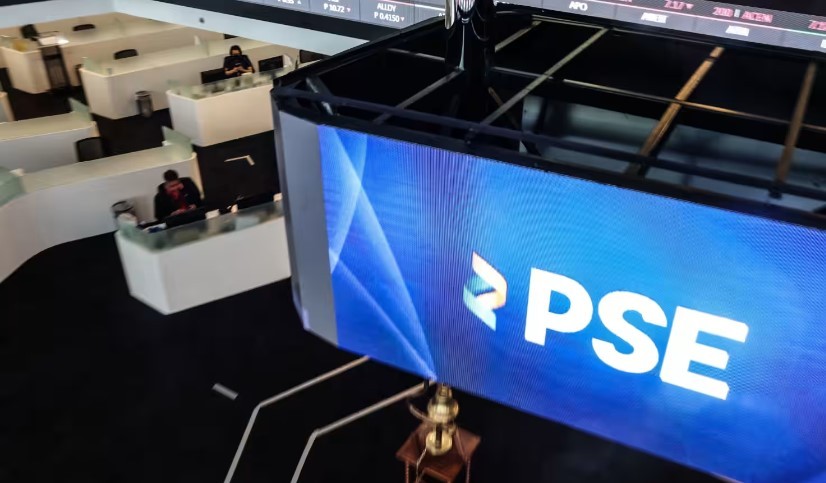Indonesia Stock Exchange Holidays 2025: Full Calendar, Trading Insights & Expert Tips
Indonesian Stock Market Overview: Opportunities in a Rapidly Growing Economy
The Indonesian Stock Market, operated by the Indonesia Stock Exchange (IDX), stands as a vital pillar of Southeast Asia’s financial system. With over 700 listed companies across diverse sectors—including banking, telecommunications, energy, and consumer goods—the IDX is one of the region’s most active and attractive markets for investors.
At the heart of the market lies the Jakarta Composite Index (JCI), which measures the performance of all listed companies and serves as a key indicator of Indonesia’s economic strength. Prominent corporations such as Bank Central Asia (BCA), Telkom Indonesia, and Astra International play a leading role, highlighting the nation’s emphasis on finance, digital connectivity, and the automotive sector.
Indonesia’s strategic position within ASEAN, combined with a young and expanding population, continues to drive interest from both domestic and international investors. The government’s initiatives in infrastructure, digital innovation, and economic diversification further enhance the long-term potential of the Indonesian stock market.
This guide provides a detailed look at the Indonesia Stock Exchange’s 2025 holiday calendar, trading hours, market characteristics, and expert strategies to help investors navigate this dynamic and fast-growing market.
Learn more: Indonesia Calendar in 2025 - Full List of Public Holidays, Hindu Days And Observances
Official Holidays for the Indonesian Stock Market in 2025
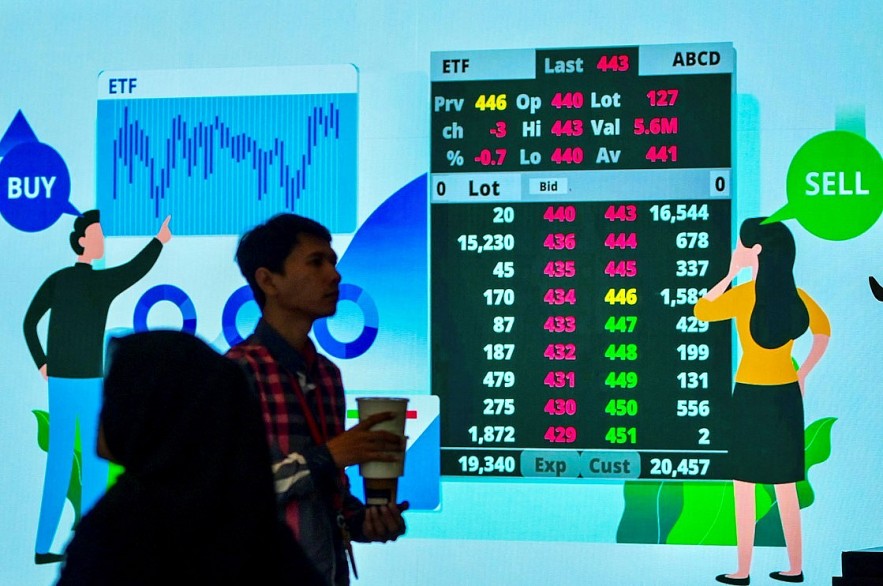 |
| Indonesian Stock Market |
The Indonesia Stock Exchange (IDX) observes public holidays based on the national calendar. Below is a detailed breakdown of each holiday, its significance, and how it affects market activities:
1. New Year’s Day - January 1, 2025
-
Date: January 1 (Wednesday)
-
Significance:
New Year’s Day is celebrated globally as the start of the Gregorian calendar year. In Indonesia, it is a public holiday marked by family gatherings and festive celebrations.
-
Market Closure:
The IDX is closed to align with international financial markets. Investors use this day to review their portfolios and set strategies for the upcoming year.
2. Chinese New Year - February 1, 2025
-
Date: February 1 (Saturday, observed February 3, Monday)
-
Significance:
Chinese New Year, or Imlek, is widely celebrated in Indonesia, particularly within the Chinese-Indonesian community. The holiday symbolizes renewal, prosperity, and family unity, with traditions such as dragon dances and red envelopes.
-
Market Closure:
The market observes a closure on the adjusted weekday to honor this culturally significant event.
3. Nyepi (Balinese Day of Silence) - March 29, 2025
-
Date: March 29 (Saturday, observed March 31, Monday)
-
Significance:
Nyepi marks the Balinese Hindu New Year and is a day of silence, fasting, and meditation. In Bali, all activities, including flights and public transportation, come to a halt.
-
Market Closure:
Trading is suspended on the adjusted weekday, allowing participants to reflect and recharge.
4. Good Friday - April 18, 2025
-
Date: April 18 (Friday)
-
Significance:
Good Friday commemorates the crucifixion of Jesus Christ and is observed solemnly by Indonesia’s Christian community.
-
Market Closure:
The IDX is closed for the day, aligning with other global markets.
5. Hari Raya Puasa (Eid al-Fitr) - April 21 and April 22, 2025
-
Dates: April 21 (Monday) and April 22 (Tuesday)
-
Significance:
Hari Raya Puasa, or Eid al-Fitr, celebrates the end of Ramadan, the Islamic holy month of fasting. It is a joyous occasion marked by prayers, feasts, and acts of charity.
-
Market Closure:
The IDX closes for two days to respect this major religious holiday. Traders should plan for reduced liquidity during this period.
6. Labour Day - May 1, 2025
-
Date: May 1 (Thursday)
-
Significance:
Labour Day honors the contributions of workers to the nation’s development. The day is marked by parades and labor-related events.
-
Market Closure:
Trading is suspended for the day, providing a pause for investors to assess their portfolios.
7. Ascension Day - May 29, 2025
-
Date: May 29 (Thursday)
-
Significance:
Celebrates the Christian observance of Jesus Christ’s ascension into heaven.
-
Market Closure:
The market is closed for the day, aligning with national practices.
8. Hari Raya Haji (Eid al-Adha) - June 28, 2025
-
Date: June 28 (Saturday, observed June 30, Monday)
-
Significance:
Hari Raya Haji, or Eid al-Adha, commemorates the willingness of Prophet Ibrahim to sacrifice his son. It is marked by prayers, the ritual slaughter of livestock, and charitable acts.
-
Market Closure:
Trading halts on the adjusted weekday, providing an extended break for observances.
9. Independence Day - August 17, 2025
-
Date: August 17 (Sunday, observed August 18, Monday)
-
Significance:
Independence Day celebrates Indonesia’s liberation from Dutch colonial rule in 1945. It is marked by flag-raising ceremonies, parades, and community events.
-
Market Closure:
The IDX observes this holiday on the adjusted weekday, reflecting national pride.
10. Christmas Day - December 25, 2025
-
Date: December 25 (Thursday)
-
Significance:
Christmas celebrates the birth of Jesus Christ and is observed with church services, family gatherings, and festive meals.
-
Market Closure:
The IDX closes for the day, aligning with global financial markets.
Trading Hours of the Indonesian Stock Market
The IDX operates on the following schedule:
-
Morning Session: 9:00 AM - 12:00 PM WIB
The first half of the trading day focuses on equities and derivatives.
-
Afternoon Session: 1:30 PM - 4:00 PM WIB
The second half of the trading day.
The IDX is closed on weekends and public holidays.
Unique Features of the Indonesian Stock Market
-
High Retail Participation
Indonesia’s stock market sees strong participation from retail investors, contributing to its dynamism and responsiveness to local sentiment.
-
Commodity-Driven Economy
Indonesia is a major exporter of coal, palm oil, and rubber. Commodity prices significantly impact the performance of listed companies in these sectors.
-
Focus on Infrastructure Development
Government initiatives such as the “Making Indonesia 4.0” program have spurred investments in infrastructure, manufacturing, and technology.
-
Shariah-Compliant Investments
Indonesia, as the world’s largest Muslim-majority country, offers extensive Shariah-compliant investment options, appealing to Islamic investors.
-
Growing Digital Economy
Indonesia’s booming e-commerce and fintech sectors, driven by companies like GoTo and Bukalapak, represent significant growth opportunities.
Investment Tips for Navigating the IDX
-
Plan Around Holidays
Consider the impact of extended breaks, such as Hari Raya Puasa and Nyepi, on market liquidity.
-
Focus on Key Sectors
Invest in banking, consumer goods, and commodities, which dominate Indonesia’s economic landscape.
-
Leverage Shariah-Compliant Products
Explore ethical investment options aligned with Islamic principles.
-
Monitor Global Commodity Trends
Keep an eye on global prices for coal, palm oil, and rubber, as they heavily influence Indonesian stocks.
-
Explore Emerging Sectors
Take advantage of growth in digital technology, e-commerce, and renewable energy.
Conclusion
The Indonesia Stock Exchange offers a wealth of opportunities for investors, reflecting the country’s dynamic economy, rich cultural heritage, and strategic position in Southeast Asia. By understanding its holiday schedule, trading hours, and unique market characteristics, investors can make informed decisions and maximize their returns in 2025.
FAQs: Indonesian Stock Market
1. When does the Indonesian stock market close in 2025 for holidays?
The Indonesia Stock Exchange (IDX) observes national holidays, following the government-declared public holiday calendar. In 2025, significant holidays include New Year’s Day (January 1), Chinese New Year (February 1), and Hari Raya Puasa (Eid al-Fitr, April 21 and 22). Extended closures occur during religious observances like Nyepi (Balinese Day of Silence) and Hari Raya Haji (Eid al-Adha).
These holidays impact trading activities, particularly when they coincide with long weekends or global market movements. Traders should plan ahead, particularly during key holidays like Eid al-Fitr, as reduced liquidity can influence stock prices and trading volumes. A detailed holiday schedule is available on the IDX website to help investors prepare their trading strategies.
2. What are the trading hours of the Indonesian Stock Exchange?
The IDX operates on the following schedule:
- Morning Session: 9:00 AM - 12:00 PM WIB
During this session, the majority of daily trading occurs, particularly for equities and derivatives.
- Afternoon Session: 1:30 PM - 4:00 PM WIB
Trading resumes after a lunch break, with a focus on finalizing transactions for the day.
The market is closed on weekends and public holidays. Investors should utilize pre-market hours to review global developments and prepare for potential price movements. The break between sessions offers an opportunity to assess market trends and recalibrate strategies for the afternoon.
3. Is the IDX open on weekends?
No, the Indonesia Stock Exchange is closed on Saturdays and Sundays. These closures align with standard global market practices and provide time for investors to evaluate their weekly performance and plan for the upcoming week.
However, global developments over the weekend—such as geopolitical events, commodity price changes, or announcements from international markets—can influence Monday’s opening session. Staying informed about these developments is crucial for investors to make timely decisions when the market reopens.
4. What makes the Indonesian stock market unique?
The Indonesian stock market has several distinctive features:
-
Retail Investor Dominance: Indonesia has a high proportion of retail investors, contributing to market dynamism and short-term volatility.
-
Commodity Sensitivity: As a major global exporter of coal, palm oil, and rubber, commodity prices heavily influence the IDX. Fluctuations in these prices can create opportunities or risks for investors.
-
Shariah-Compliant Investments: The IDX offers extensive Islamic financial instruments, including Shariah-compliant stocks and bonds, appealing to ethical and faith-based investors.
-
Booming Digital Economy: Indonesia’s digital transformation is driving growth in tech companies like GoTo and Bukalapak, creating opportunities in e-commerce and fintech.
-
Government Infrastructure Push: Large-scale infrastructure projects have spurred growth in construction, energy, and transportation sectors.
These factors make the IDX an exciting market for both local and international investors, offering opportunities across traditional and emerging industries.
5. How can international investors access the IDX?
International investors can access the Indonesia Stock Exchange through several methods:
-
Global Brokerage Accounts: Many international brokers offer access to the IDX, enabling investors to trade directly in Indonesian stocks. These platforms often provide tools for research and analytics.
-
Exchange-Traded Funds (ETFs): ETFs that track Indonesian indices, such as the Jakarta Composite Index (JCI), provide a convenient way for investors to gain diversified exposure to the market without trading individual stocks.
-
Regional Funds: ASEAN-focused mutual funds often include Indonesian stocks as part of their portfolios, providing a balanced approach to regional investment.
-
American Depositary Receipts (ADRs): Some major Indonesian companies, such as Telkom Indonesia, offer ADRs traded on U.S. exchanges. This provides a straightforward way for international investors to access Indonesian equities.
-
Shariah-Compliant Products: Investors interested in ethical and faith-based investments can explore Shariah-compliant stocks and sukuk available on the IDX.
When investing in Indonesia, consider factors such as currency exchange risks, transaction costs, and tax implications. Partnering with brokers who specialize in Southeast Asian markets can streamline the process and provide valuable insights.
6. How does the IDX handle commodity price fluctuations?
Indonesia’s stock market is highly sensitive to global commodity prices due to the country’s reliance on exports of coal, palm oil, rubber, and other natural resources.
- Sector-Specific Impact: Companies in the plantation, mining, and energy sectors are directly affected by commodity price trends. For example, rising palm oil prices can boost plantation stocks, while declining coal prices may negatively impact mining companies.
- Global Factors: Events such as geopolitical tensions, changes in global demand, and environmental regulations can influence commodity prices and, in turn, the IDX.
- Investor Strategies: Traders should monitor global commodity markets closely, as price fluctuations can present opportunities for short-term gains or require adjustments to long-term investment strategies.
Investors can also leverage ETFs and sector-focused funds to capitalize on commodity-driven opportunities while managing risks effectively.
7. What are the growth opportunities in Indonesia’s stock market?
The IDX offers numerous growth opportunities across traditional and emerging sectors:
- Infrastructure: The government’s ambitious infrastructure development projects, such as new toll roads, airports, and industrial zones, have boosted the construction and materials sectors.
- Digital Economy: Indonesia’s e-commerce and fintech sectors are rapidly expanding, driven by companies like GoTo and Bukalapak, offering significant potential for tech-focused investors.
- Renewable Energy: Investments in renewable energy projects, such as solar and geothermal, are growing as Indonesia seeks to reduce its reliance on fossil fuels.
- Consumer Goods: Indonesia’s young and growing middle class drives demand for consumer products, benefiting companies in food, retail, and personal care.
By focusing on these sectors and aligning with Indonesia’s economic transformation initiatives, investors can tap into the country’s long-term growth potential.
 Singapore Stock Market Holidays 2025: Key Dates, Advices, and Unique Features Singapore Stock Market Holidays 2025: Key Dates, Advices, and Unique Features The Singapore stock market, centered on the Singapore Exchange (SGX), is a key financial hub for Southeast Asia and beyond. This article outlines the official ... |
 Malaysian Stock Market Holidays 2025: Key Dates, Unique Features, and Tips Malaysian Stock Market Holidays 2025: Key Dates, Unique Features, and Tips The Malaysian stock market, led by Bursa Malaysia, is a key financial hub in Southeast Asia. This article provides a detailed overview of the official ... |
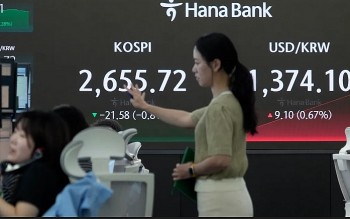 Korean Stock Market Holidays 2025: Key Dates, Unique Features, and Tips Korean Stock Market Holidays 2025: Key Dates, Unique Features, and Tips The Korea Exchange (KRX) will observe several public holidays in 2025, including New Year’s Day, Seollal (Lunar New Year), Independence Movement Day, Children’s Day, Memorial ... |
 Egyptian Stock Market Holidays 2025: Key Dates, Unique Features, and Tips Egyptian Stock Market Holidays 2025: Key Dates, Unique Features, and Tips The Egyptian Exchange (EGX) will observe several public holidays in 2025, including Coptic Christmas, Revolution Day, Eid al-Fitr, Sham El-Nessim, Sinai Liberation Day, Labour Day, ... |
 Vietnam Stock Market Holidays 2025: Key Dates, Unique Features, and Tips Vietnam Stock Market Holidays 2025: Key Dates, Unique Features, and Tips The Vietnam Stock Exchange (VNX) will observe 2025 public holidays, including Tết (Vietnamese New Year) from January 25 to February 2, Hung Kings' Commemoration Day ... |

